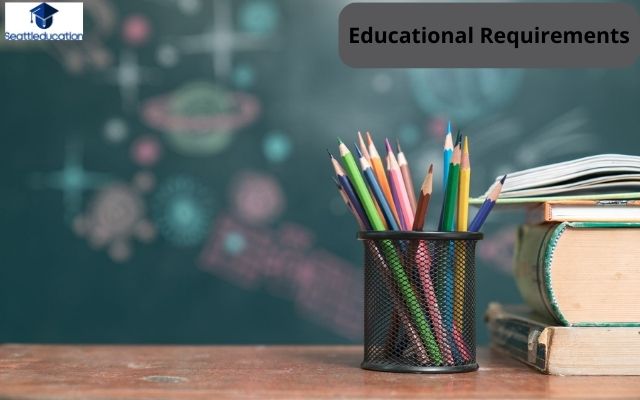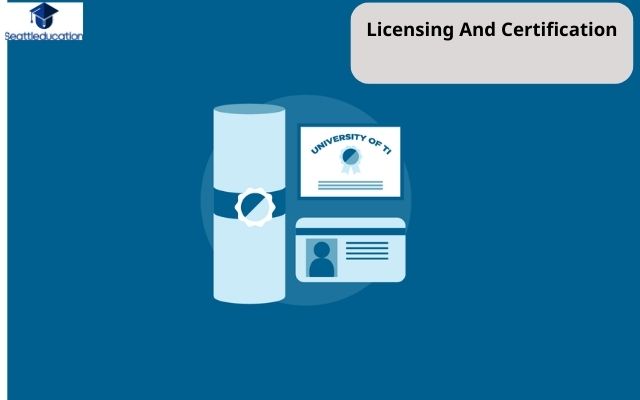How Long Does It Take To Become A School Counselor? Best Answer
How Long Does It Take To Become A School Counselor? If you have a passion for helping young people navigate the challenges of life, becoming a school counselor may be the perfect career choice. However, before embarking on this path, it’s important to understand how much time and effort is required to become a licensed professional.
The journey to becoming a school counselor typically involves completing an undergraduate degree in counseling or psychology, followed by additional graduate-level coursework and supervised clinical experience.
Let’s get started!
Educational Requirements
Becoming a school counselor requires completing certain educational requirements. Degree options vary, but most states require at least a master’s degree in counseling or a related field. Graduate programs typically take two to three years to complete and include coursework in areas such as human development, ethics, and multicultural issues.

In addition to course requirements, gaining internship experience is crucial for aspiring school counselors. The American School Counselor Association recommends that students complete at least 600 hours of supervised clinical experience before graduating from their graduate program. This hands-on training allows students to apply what they have learned in the classroom to real-world situations.
Essential skills for high school counselors is also important for school counselors who want to stay up-to-date on best practices and maintain their licensure. Many states require ongoing professional development hours each year.
Additionally, some organizations offer certifications or specialized training in areas such as college admissions counseling or working with students with disabilities. These opportunities can help school counselors stand out in a competitive job market and provide additional skills and knowledge to better serve their students’ needs.
Moving forward into licensing and certification, it is important for prospective school counselors to understand the steps required by their state regulatory board.
Licensing And Certification
Becoming a school counselor is an admirable profession that requires dedication, hard work, and compassion. However, it’s not just about getting your degree and walking into a job; there are several steps you need to take before becoming fully licensed and certified.
One of the most critical aspects of becoming a school counselor is fulfilling exam requirements. State regulations vary when it comes to licensing as a school counselor, so be sure to research what your state requires. Some states may require additional coursework or supervised hours before granting licensure.

Once all necessary requirements have been met, individuals will then be eligible for national certification through organizations such as the National Board for Certified Counselors (NBCC).
It’s important to note that online counseling opportunities and certification isn’t the end of the road – both require renewal processes every few years along with continuing education courses in order to maintain active status. Aspiring counselors should embrace this requirement as an opportunity to continue learning and growing within their field while providing the best possible care for their students.
Specialty Areas
When considering a career as a school counselor, it’s important to understand the various specialty areas that exist in this field. Some counselors work primarily with elementary school students, while others focus on middle or high school-aged individuals. Additionally, some counselors specialize in working with certain populations such as those with disabilities or those from 2023 celebration of counselors.
Job responsibilities for school counselors vary depending on their specific area of expertise. Generally speaking, however, these professionals are responsible for helping students achieve academic success and personal growth.
This may involve providing individual counseling sessions, leading group therapy sessions, coordinating services between students and other support staff, and collaborating with parents and teachers to create plans for student success.
Training options for becoming a school counselor can also differ based on one’s desired specialty area. Most states require at least a master’s degree in counseling or a related field along with completion of supervised clinical hours before earning licensure. Salary expectations will depend largely on one’s level of education and experience but typically range from $50k-$70k per year.
Personal qualities that make an effective counselor include strong communication skills, empathy, attention to detail, problem-solving abilities, and cultural competence.
Job Outlook
As a school counselor, the job outlook is promising. With increasing awareness about mental health and emotional wellbeing, the need for qualified counselors in schools has gone up. Job availability is expected to grow at an above-average rate of 8% from 2019-2029. This means that there will be around 27,200 new jobs created during this period.
Salary expectations for school counselors vary based on location and experience. The median salary for school counselors as of May 2020 was $58,120 per year according to the Bureau of Labor Statistics. However, salaries can range anywhere between $35,000-$94,000 depending on factors such as education level, years of experience, and geographic location.
To become a successful school counselor requires excellent communication skills, empathy towards students’ needs and concerns, strong organizational abilities to manage multiple tasks simultaneously while staying focused on individual student counseling sessions or group meetings. Work-life balance is also important because being able to switch off and disconnect from work stress allows you to provide effective support to your students when they need it most.
In terms of industry trends, technology plays a significant role in how school counseling services are delivered today. Virtual counseling sessions have increased in popularity due to their convenience and accessibility across different locations. As a result, having technical proficiency with online tools is becoming increasingly necessary for school counselors.
School Counselor Training Programs
Becoming a school counselor can be an incredibly rewarding career path for those who are passionate about helping students succeed. However, before embarking on this journey, it’s important to understand the training required to become a qualified counselor.

The length of time it takes to complete a program and how much it costs will depend on various factors. Most school counseling programs require at least a master’s degree in counseling or psychology, which typically take around 2-3 years to complete.
There are also online options available that may offer more flexibility in terms of scheduling and coursework, but these programs still generally require similar curriculum details as traditional programs.
Some common courses in a school counseling program include mental health assessment, group therapy techniques, child development, and ethical considerations. When considering different school counseling programs, it’s important to compare their costs and admission requirements.
Program lengths and tuition fees can vary greatly between schools, so researching multiple options is key. Admission requirements may include things like previous academic performance, work experience, letters of recommendation, and personal statements.
As you begin your search for the right school counseling program for you, keep in mind that completing the necessary education is just one step towards becoming a successful counselor. In the next section, we’ll discuss what steps you should take when applying for positions after graduation.
Applying For A Position
So you’ve finally completed your education and are ready to dive into the world of school counseling. Congratulations! Now, it’s time for the next step: How To Be A High School Counselor. This process may seem daunting at first, but with some helpful tips and tricks, you can make it through successfully.
Firstly, start your job search by exploring online job boards specifically geared towards educational positions. You can also reach out to local schools or districts directly to inquire about available openings. Additionally, attending career fairs or networking events can be an excellent way to connect with potential employers.

Next, it’s essential to have a well-crafted resume that highlights your skills and experience in the field of counseling. Be sure to tailor your resume specifically for each position you apply for and include any relevant certifications or licenses you hold.
When submitting your application materials, don’t forget about the importance of a strong cover letter. Use this opportunity to showcase why you’re passionate about working in schools and how your unique qualifications make you an ideal candidate for the role.
Bullet Points:
- Actively search for jobs on educational job boards
- Attend career fairs and network with professionals in the field
- Tailor resumes for each specific job application
- Write customized cover letters highlighting passion and qualifications
Now that your application has caught the attention of potential employers, it’s time to prepare for interviews. Research common interview questions and practice answering them beforehand using examples from past experiences.
Dress professionally, arrive early, and bring copies of your resume and any other requested materials. Transition Sentence: With these necessary steps covered, let’s move onto discussing what happens during the interview process itself.
Interview Process
After submitting your application for a school counselor position, the next step is to prepare for the interview process. Interview tips can range from researching the school district and its values to practicing common questions with friends or family members. It’s essential to project confidence in both verbal and nonverbal communication during interviews.
One aspect of nonverbal communication that should be considered is dress code. Dressing professionally demonstrates respect for the interviewers and their time while also showing an understanding of the importance of the job. Body language should also convey confidence through good posture, eye contact, and active listening skills. Remember to take deep breaths before entering the room as this may help calm nerves.
Following up after an interview can show enthusiasm towards working with students at the school district. A thank-you note or email expressing gratitude for their time can make a lasting impression on the interviewer(s). This follow-up can also provide additional opportunities to showcase why you are perfect for the role by touching upon highlights from your qualifications or experience.
Remember that every interaction counts in securing a position as a school counselor. Transition: Working with students requires patience, empathy, and effective communication skills; therefore, it’s crucial to understand what qualities make an excellent school counselor beyond technical knowledge and educational requirements.
Working With Students
Becoming a school counselor is not something that happens overnight. It requires dedication and hard work. But how long does it take to become one? The answer varies depending on the program you choose, but typically, becoming a school counselor takes about two to three years of graduate study.
Once you’ve earned your degree and completed any necessary certification requirements, you’ll be ready to start working with students in a variety of ways.
One important aspect of being a school counselor is student engagement. This involves building positive relationships with students so they feel comfortable coming to you for help or advice.
Another crucial skill for school counselors is behavior management. As a counselor, you may need to develop plans or strategies to help students who are struggling with behavioral issues.
Additionally, academic support is a key area where school counselors can make an impact. You might work with individual students or small groups to provide extra help in subjects like math or reading.
In addition to these areas, many school counselors also focus on mental health and social emotional learning (SEL). These topics have become increasingly important in recent years as schools recognize the role they play in helping students thrive both academically and emotionally. By addressing mental health concerns and teaching SEL skills like self-awareness and relationship-building, school counselors can make a real difference in their students’ lives.
As a school counselor, you don’t just work with students – you also have an important role to play when it comes to working with parents. Whether it’s communicating information about their child’s progress or collaborating on solutions for specific issues, effective communication between counselors and parents can benefit everyone involved.
Working With Parents
Communicating effectively with parents is a crucial aspect of being a school counselor. As a counselor, it’s important to listen carefully and provide clear information while maintaining confidentiality.
Building strong relationships with parents can help establish trust and encourage them to be more involved in their child’s education.
Managing expectations is another important skill when working with families. Parents may have high hopes for their child’s academic success or specific goals they want the counselor to address. It’s essential to work collaboratively with parents to set realistic expectations and identify achievable steps towards meeting those goals.
Addressing concerns is also an integral part of working with parents. Counselors must be prepared to handle difficult conversations about sensitive topics such as mental health issues or family problems. By establishing rapport and providing support, counselors can help families feel heard and understood.
Developing these skills through professional development opportunities can greatly enhance a counselor’s ability to work effectively with parents.
Professional Development
Working with parents is an essential part of a school counselor’s job. However, it’s not the only aspect that defines this profession. If you’re considering becoming a school counselor, you may wonder how long it takes to achieve this goal.
Becoming a school counselor requires completing specific educational and licensing requirements. Typically, individuals need to hold at least a master’s degree in counseling or a related field. Additionally, they must obtain state licensure as a professional counselor or school counselor. The timeline for achieving these milestones varies depending on factors such as program length and individual circumstances.
Continuing education plays an important role in ensuring that school counselors stay up-to-date on best practices and trends within the field. Many organizations offer networking opportunities, mentorship programs, skill-building workshops, and other resources designed to help professionals advance their careers.
By taking advantage of these career growth opportunities, school counselors can nurture their skills while expanding their knowledge base and connections within the industry.
- Building relationships: Connect with your colleagues and build relationships based on mutual respect.
- Encourage open communication
- Acknowledge each other’s strengths
- Celebrate successes
- Finding purpose: Cultivate meaning in your work by identifying what motivates you personally.
- Set goals aligned with your values
- Take time to reflect on progress regularly
- Find ways to integrate passion into daily tasks
- Pursuing passions outside of work: Create balance in your life by pursuing hobbies and interests beyond your professional responsibilities.
- Try new activities
- Volunteer for causes close to your heart
- Make time for self-care
As previously discussed, continuing education is crucial for career advancement opportunities within the school counseling profession. With access to numerous resources like networking events, mentorship programs, skill-building workshops, and more – there are always possibilities available for those who seek them out.
So if you’re committed to growing both professionally and personally, the opportunities for career growth as a school counselor are endless.
Career Growth Opportunities
School counseling is a fulfilling profession that provides numerous career growth opportunities. As you gain experience and expertise, there are various career pathways to explore in this field. Many school counselors advance their careers by taking up leadership roles such as department heads or supervisors.

Promotion potential for school counselors largely depends on factors such as performance, education level, and years of experience. With the right qualifications and hard work, one can climb up the ladder to higher positions such as principal or district-level administrator. Additionally, salary growth is possible through promotions and obtaining additional certifications.
Continuing education is essential for any professional looking to grow their career. School counselors have access to various training programs and conferences that help them stay current with industry trends while expanding their skill set. Pursuing advanced degrees like a master’s or doctoral degree also increases promotion potential and opens doors to new opportunities within the field.
Conclusion
In conclusion, becoming a school counselor requires dedication and commitment to the profession. While the specific requirements may vary depending on location and educational institution, it generally takes around 2-3 years of graduate-level education and several hundred hours of supervised fieldwork to become certified.
Despite the challenges that come with being a school counselor, such as managing a heavy workload and balancing responsibilities, many find the work fulfilling and rewarding.
With proper training and support, counselors can make a significant impact in their students’ lives by providing guidance, support, and resources to help them succeed academically and emotionally.






